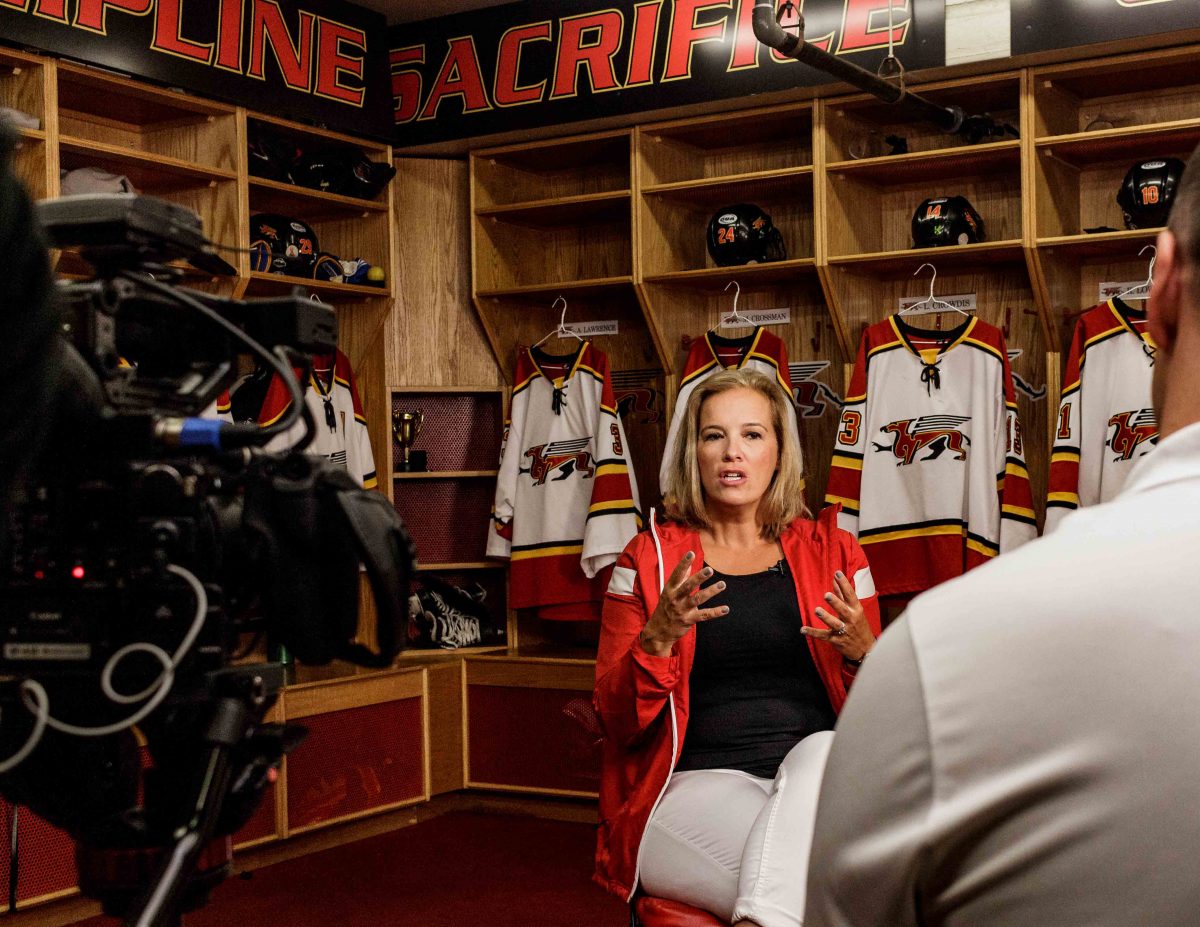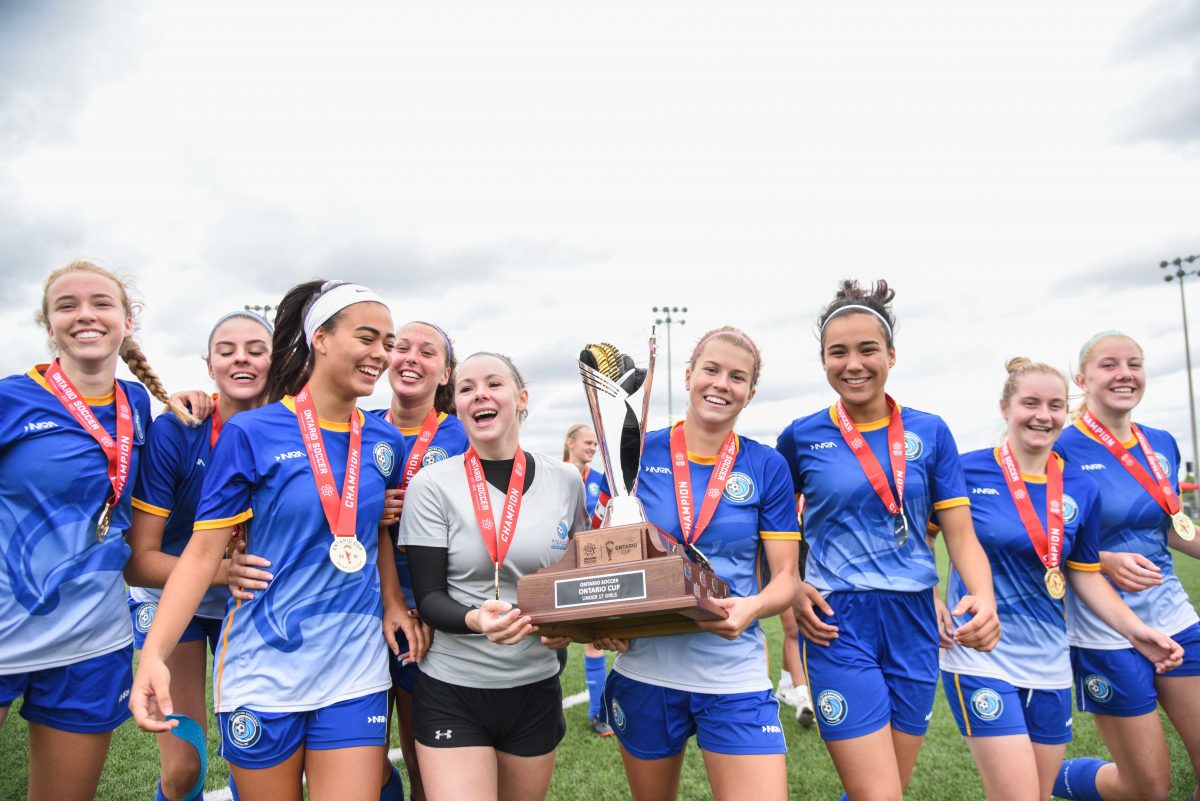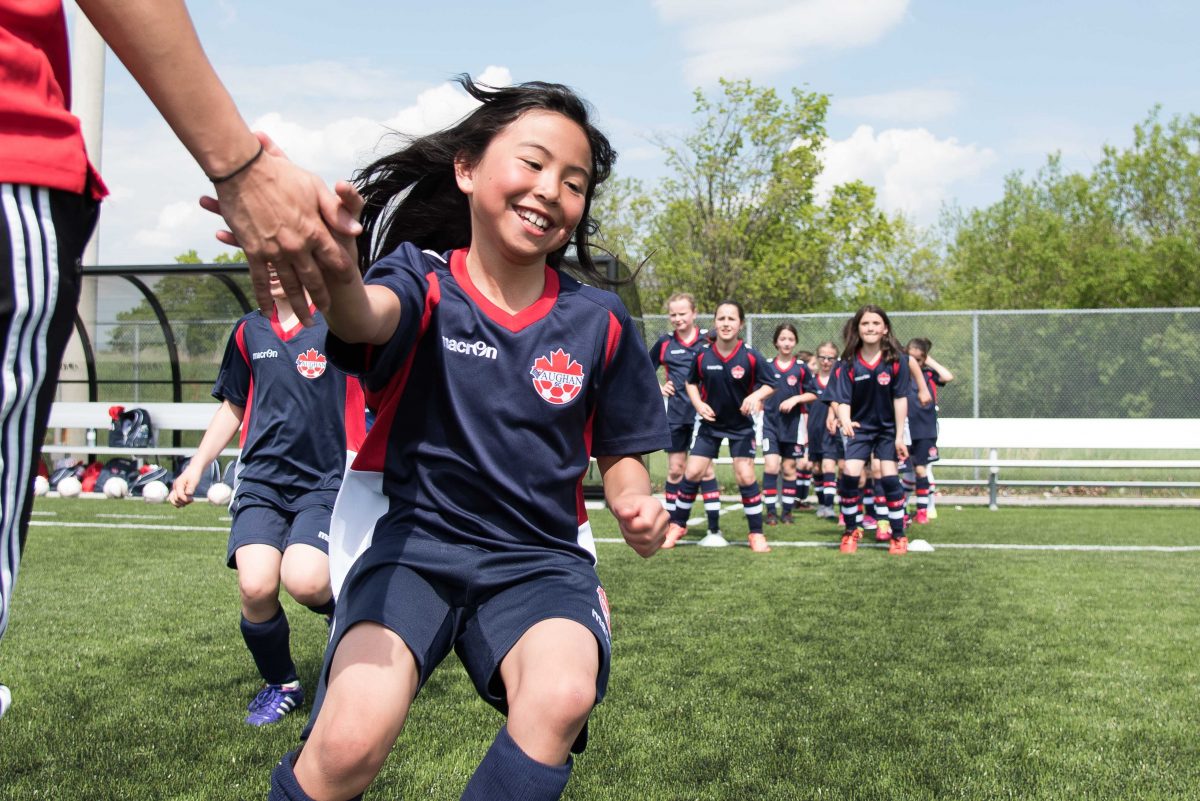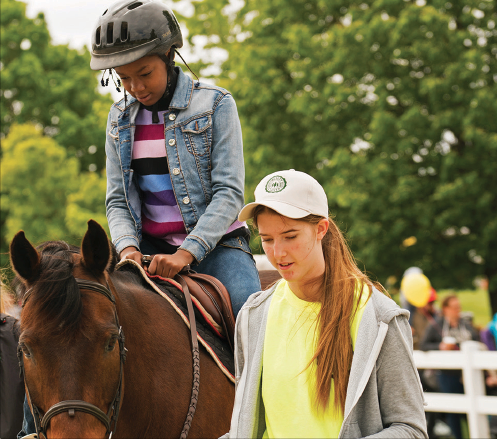
Women + Sport Leadership
There is a strong movement to improve the representation of women in senior leadership
and decision-making roles.
By Angela Kryhul
Sport organizations across Canada are taking action to boost participation by women and girls at every level—from getting more girls out on the playing field to ensuring gender equity in the boardroom.
Advancing gender equity in sport can be complex work if it is to benefit all areas of sport—athletes, coaches, managers, officials, administrators, board members and volunteers, says Allison Sandmeyer-Graves, CEO, Canadian Association for the Advancement of Women and Sport and Physical Activity (CAAWS).
“Equality is providing everybody with the same start line. Equity is about providing everybody with the same finish line so that everyone has the opportunity to achieve the same outcomes,” Sandmeyer-Graves explains. “We believe that having more women in decision-making roles—guiding the vision, the strategy, the investments and setting the policy—is crucial for equity within sports. Having diversity in your leadership can help challenge the status quo so that leaders are better at strategic decision-making, tackling complex problems, mitigating group-think, and helping create organizations that have stronger cultures and better checks and balances.”
It all starts with determined leadership, however, identifying next steps is often where organizations get stuck. “CAAWS is very much invested in being a solutions partner within the sports system,” she says. “We have some great resources and guidance to offer in respect to leadership.”
Visit caaws.ca to download Women in Sport: Fuelling a Lifetime of Participation.
Women as Leaders in Sport
National Sport Organizations
26.3% Board Members
17.5% Board Chair
33% Senior Staff
Multi-sport Organizations
38% Board Members
14.3% Board Chair
33.3% Senior Staff
SOURCE: Women in Sport: Fuelling a Lifetime of Participation, 2016; CAAWS and Canada’s Dairy Farmers Fuelling Women Champions

UNIVERSITY OF GUELPH
She’s Got Game
Backgrounder
She’s Got Game, a new initiative of the Athletics Department at the University of Guelph, aims to engage women and girls in sport and help them acquire the tools to succeed both on and off the field of play.
The initiative grew out of a need to address an imbalance in funding for female varsity athletes, which ultimately affects the university’s ability to recruit and retain the best student female athletes. Presently, the university receives three times more in donations to support scholarships for male athletes than it does for female athletes.
An annual gala event to help fund scholarships for female athletes has been so successful that the Athletics Department decided to build a yearlong initiative around equity, says Scott McRoberts, director, athletics.
Goals and Actions
The main objectives of the She’s Got Game initiative are:
- Raise the amount of donor-supported women’s scholarships by $2.5 million.
- Consistently offer an equal distribution of athletic scholarships between male and female athletes.
- Position the University of Guelph and the Guelph Gryphons as national and international leaders in women’s sports.
- Build awareness of the program and its impact locally, nationally and abroad among alumni, community members and internal stakeholders.
- Make policy changes within the Athletics Department that support the program.
Activities taking place throughout the year include community engagement and events, a speaker series, a website (shesgotgame.ca) and social media support. McRoberts has also reached out for guidance to CAAWS and the Coaching Association of Canada.

RINGETTE CANADA
Female Coach on the Bench
Backgrounder
Ringette Canada’s Female Coach on the Bench policy is an affirmative action aimed at increasing the number and quality of certified female coaches in both the assistant and head coach positions.
“We have several females within our sport as well as leaders in our boardroom. But for some reason that wasn’t transferring to the bench,” says Natasha Johnston, executive director, Ringette Canada.
Ringette Canada leads by example by requiring a minimum of one certified female coach on the registration form for all high performance teams, including the Junior National Team, the Senior National Team and all Canada Winter Games teams. The national body is working with its provincial associations to implement the initiative at the grassroots level.
Challenges
While some local leagues were able to implement the new policy, others instead placed an adult female on the bench as team manager, rather than in an assistant or head coach capacity. The national body is putting more energy into education and the conversation around why female coaches are so important, and is making resources available to help leagues implement the policy, Johnston says.
Ringette, like many sports at the community level, is challenged to recruit enough qualified volunteer coaches, whether female or male. “Sometimes, women like to be asked,” Johnston explains. “At a local association level, just putting the call out for coaches may not be the best approach. So, we’re finding different ways of engaging.”
Measuring success
Of Ringette Canada’s nine provincial members, Alberta, Saskatchewan and Quebec have adopted the policy, and Ontario has embedded it in its coaching requirements.
Ringette Canada is developing key performance indicators around the policy. “It’s change management and it’s not done overnight. You have to take a multifaceted approach,” Johnston says.
Visit coachingringette.ca to download Ringette Canada’s Female Coach on the Bench Action Plan.
In what was widely hailed as a step in the right direction, the Toronto Maple Leafs has hired Hayley Wickenheiser, Canadian hockey great and five-time Olympic medalist, as assistant director of player development.

ONTARIO SOCCER
Governance Reform
Backgrounder
Ontario Soccer is transitioning from
a representative board of directors (21 district presidents and seven executive members) to a 12-person competency and skills-based model consisting of a president/chair, a vice-president, five regional directors, three designate directors and two independent directors.
Among the reasons for the change: not only have the sport’s national and international governing bodies mandated board modernization, but board structure must meet the governance expectations of both the federal and Ontario not-for-profit corporations acts, explains Ontario Soccer CEO Johnny Misley.
Another key reason: “We have over 400,000 players in Ontario, of which about 40 per cent are female. However, only 27 per cent of coaches, 22 per cent of match officials and 25 per cent of our board of directors are female. That’s not good enough from a leadership perspective,” Misley says.
Challenges
The organization has spent the past four years educating board members and the constituency as to why governance reform is necessary, Misley explains. It took three attempts to achieve a two-thirds majority of membership votes in favour of updating the bylaws. And while the previous board effectively had to “vote themselves off the island,” they showed leadership in understanding and supporting the need to modernize the board structure, Misley says.
Goals and Actions
Ontario Soccer is using a competency skills-based matrix to
ensure that new board members bring the knowledge, experience and skills—in areas such as business, finance, legal, human resources and marketing—that are required to run a multimillion-dollar entity, Misley explains. Ontario Soccer is aiming for an inclusive and gender equitable board, with a 40 per cent minimum representation of each gender by 2020.
Measuring success
The organization is transitioning towards an evidence-based approach to decision-making. “We had to get away from making decisions solely based on people’s opinions or on human emotion,” Misley explains. Ontario Soccer’s methodical new approach includes pilot project work as well as evaluation and assessment models based on objective data, stakeholder education, consultation and input.
Taking Action
Thinking about governance reform? Misley offers this advice: research how peer organizations have achieved reform, including their successes and failures; ensure that your key leaders will champion reform initiatives; collaborate with your stakeholders by communicating your goals and asking for input; persevere and constantly adjust and refine what you’re doing.



